US universities impose strict regulations to crack down on Gaza protests
Universities across the United States have reportedly implemented stricter regulations and new policies to crack down on campus protests and free speech, in the wake of on-campus activism to protest the US-backed Israel’s war in Gaza during the last academic year.
A recent report by The New York Times underscores a growing trend among US higher education institutions to impose stricter policies aimed at maintaining order while grappling with the complexities of free expression.
Many universities have implemented measures including mandatory permits for demonstrations, restrictions on the time and place for protests, and sanctions for actions claimed disruptive or harmful to the campus environment.
Lauren Lassabe Shepherd, a professor at the University of New Orleans, said that more detailed rules would make it easier for university administrators to say that student protesters have broken them.
As NYT reports, several universities have explicitly banned encampments, a form of protest that has gained prominence and effectiveness.
While many institutions previously restricted camping on their campuses, schools like Emory University, Rutgers, and the University of California system have now reinforced or implemented stricter prohibitions.
The University of California system has set new guidelines that require protest leaders to register their events in advance and conduct them in designated areas.
Other institutions are considering similar pathways, claiming that they are necessary steps to prevent violence and maintain public safety.
Many schools, like Indiana, have enacted regulations that confine protests to designated times and locations.
At Ohio State University, for instance, all campus events must conclude by 10 pm, while Northwestern University has prohibited protests before 3 pm in areas surrounded by classrooms.
Carnegie Mellon University has introduced a new policy allowing officials to disperse unregistered gatherings of over 25 individuals at their discretion.
New York University, in a further crackdown, revised its conduct guidelines to explicitly state that targeting individuals or ideologies associated with “Zionism” may breach its non-discrimination policy, invoking “anti-Semitism.”
Opponents of the new policies, however, warn of the risks they pose to the very fabric of academic discourse.
Student activists have expressed fears that such regulations could dilute their messaging and discourage individuals from participating in vital discussions around contentious global issues.
During the previous academic year, US universities and colleges emerged as a focal point for student-led pro-Palestinian protests, igniting a significant wave of demonstrations at universities throughout the world, where hundreds of students called on their universities to divest from companies that have ties to the Israeli regime.
In the spring, after pro-Palestinian students set up tents at Columbia University and school officials brought in city police to clear the demonstration, similar encampments began to emerge at colleges nationwide.
Protests erupted at prominent universities such as Harvard, Yale, MIT, and the University of California, frequently intensifying into clashes between opposing groups’ factions and increasing tensions within the campus environment.
The US Police arrested more than 3000 students, professors, and faculty members after accusing the involved activists of “anti-Semitism” and “terrorism” and school administrators threatened some protest leaders with suspension and academic probation.
The start of the semester coincided with Israel's genocidal war entering its 12th month. So far, more than 41,000 Palestinians have been killed in the genocidal war.
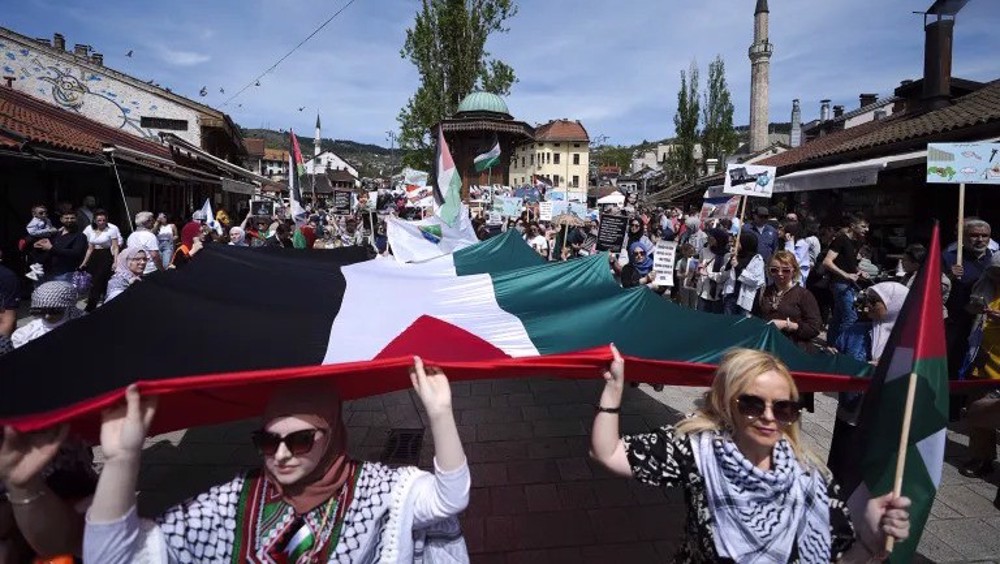
Hamas urges global strikes, sit-ins to end Israel’s genocide in Gaza
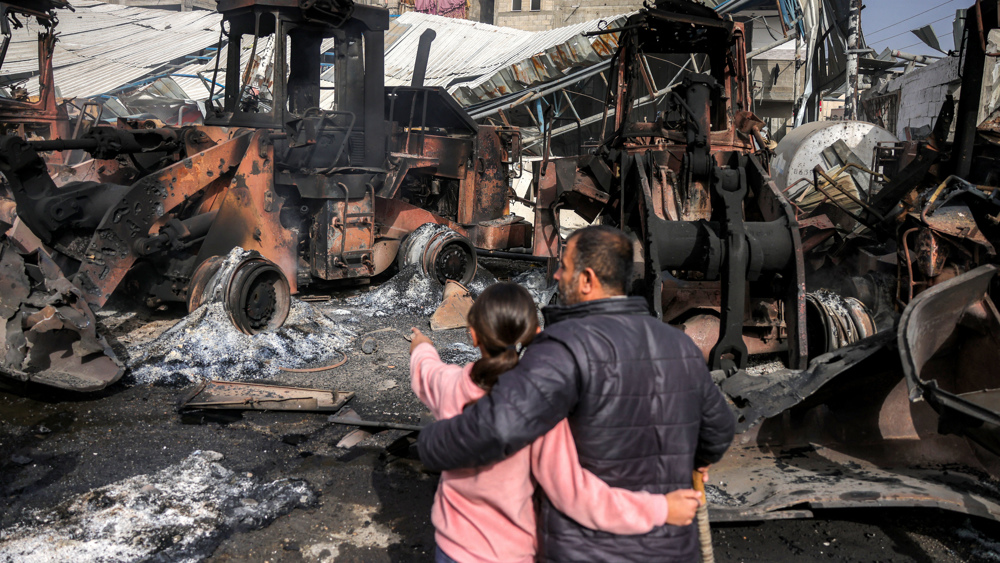
UNRWA: Gaza ‘land of desperation’ after 50 days of total Israeli siege
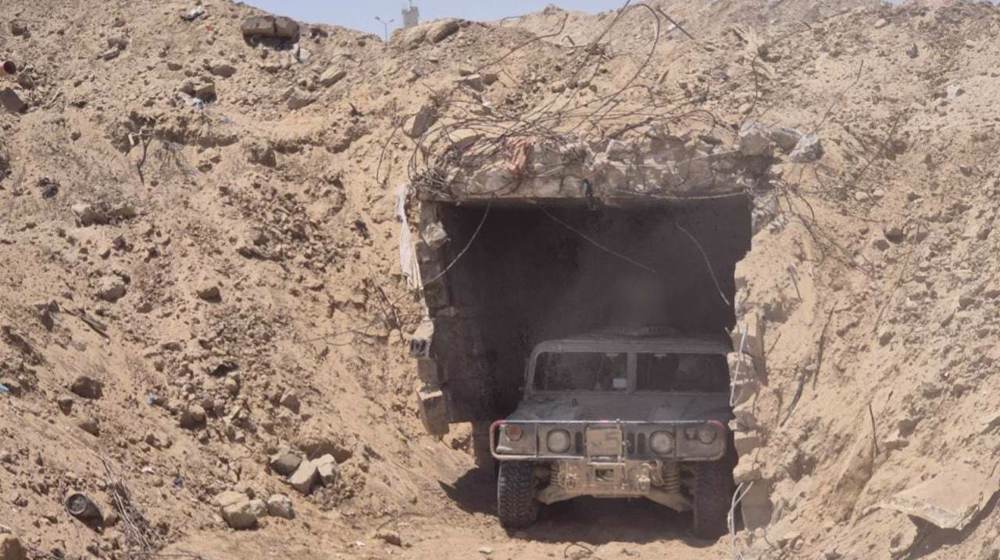
Lies unraveled: Ex‑minister says Israel faked Gaza tunnel image to stall truce deal
Yemen asserts enhanced military readiness; takes US aircraft carriers under firepower
VIDEO | Iran seeks foreign investment to boost oil, gas sectors
Iran condemns terror attack in India's Kashmir region
After second Signalgate scandal, Democrats call for Hegseth’s resignation
Mahmoud Khalil missed son's birth after US officials denied temporary release
Iran’s annual inflation up 0.7% to 33.2% in April: SCI
Ayatollah Sistani offers condolences on passing of Pope, hails his role in promoting peace
Iran says expert-level talks with US postponed to Saturday


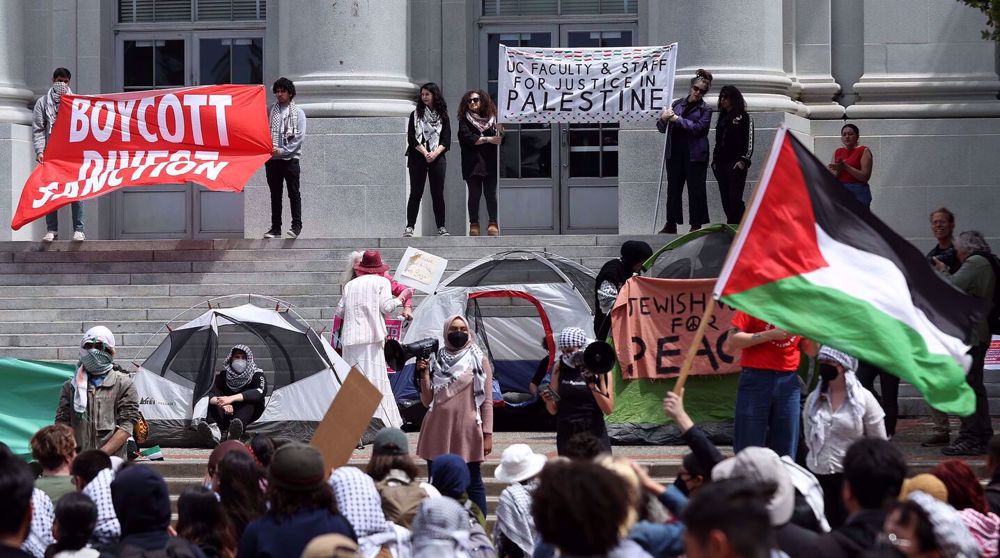
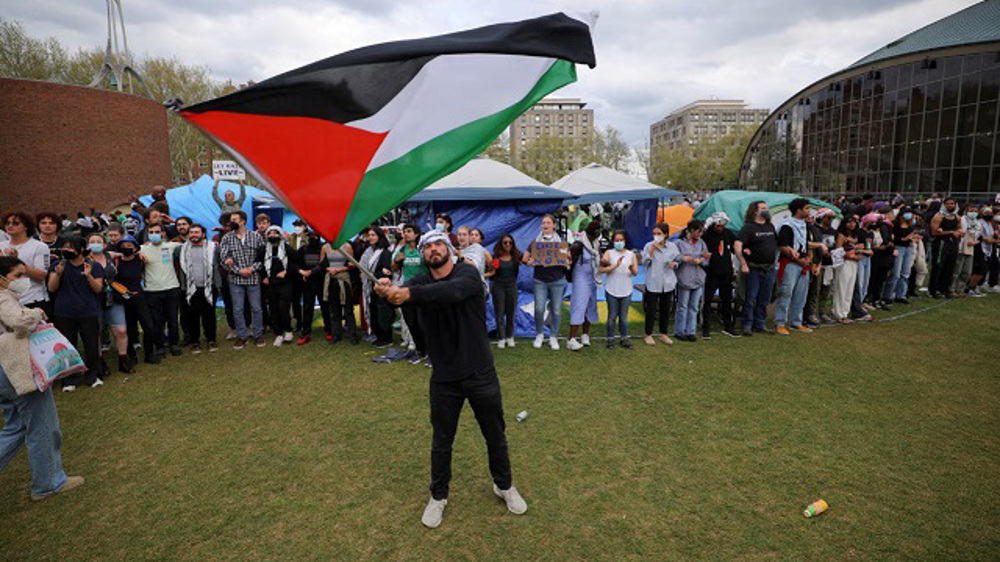
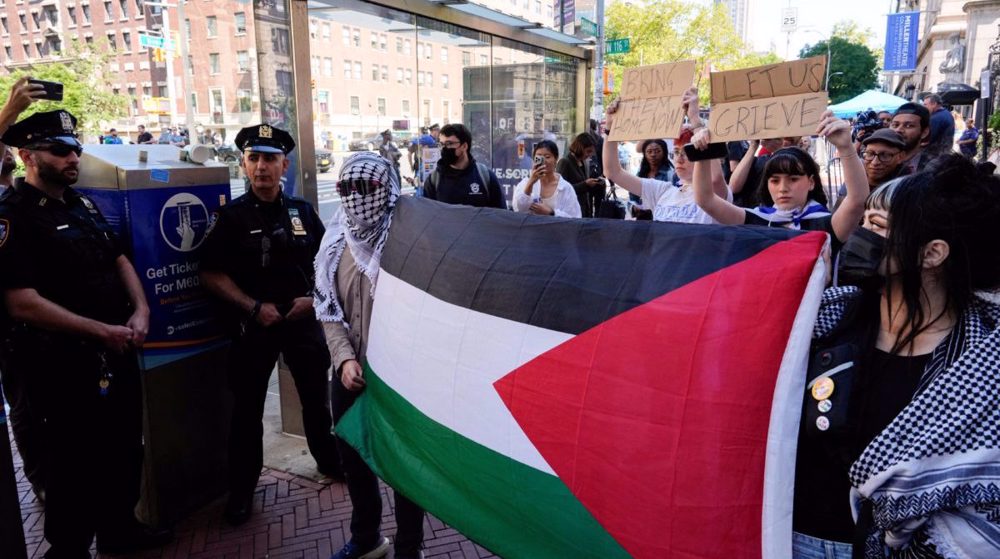



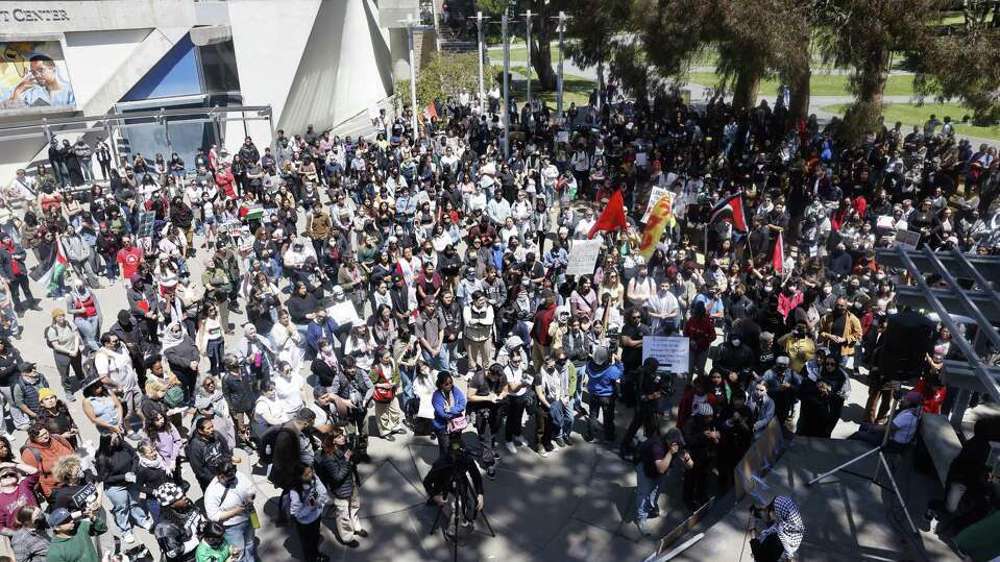
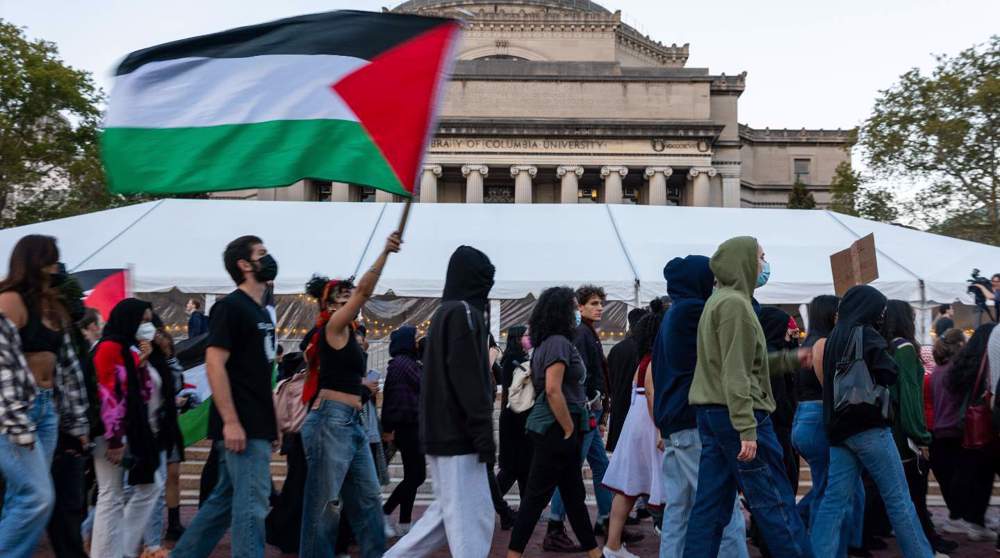
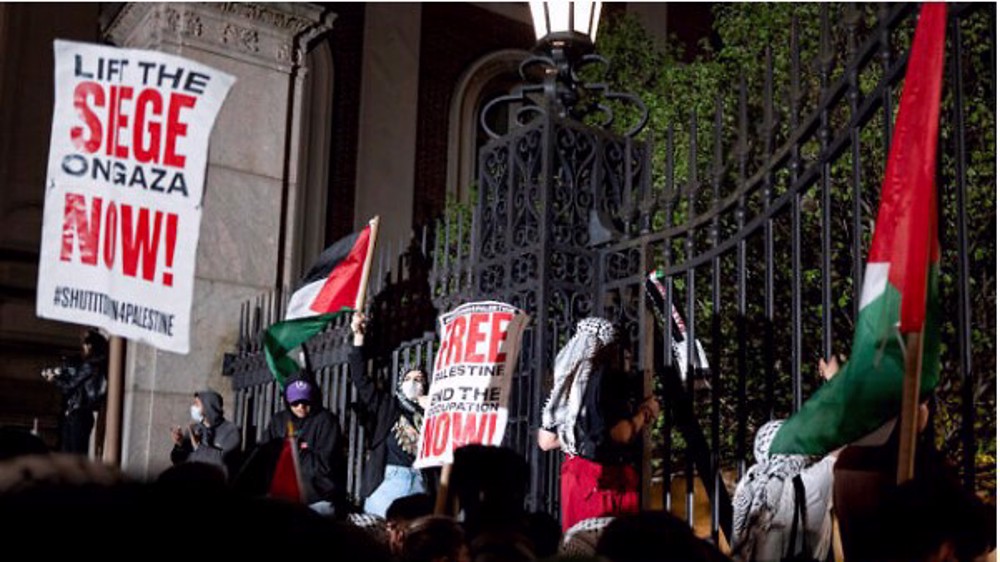
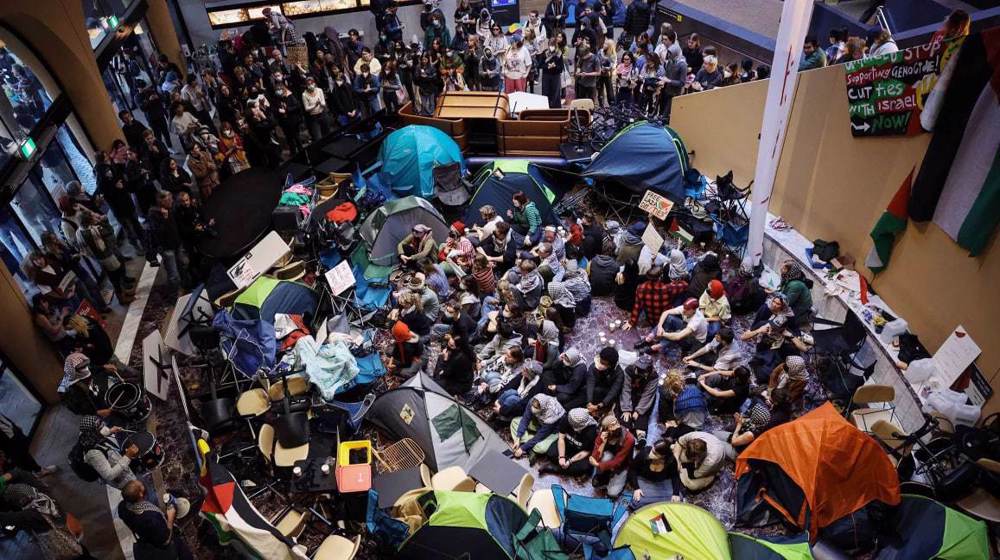
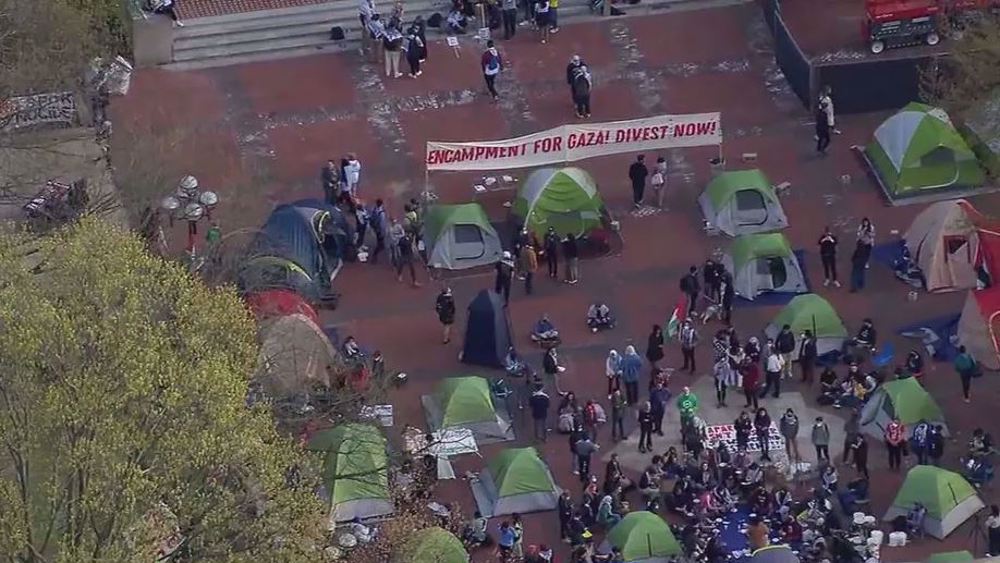

 This makes it easy to access the Press TV website
This makes it easy to access the Press TV website